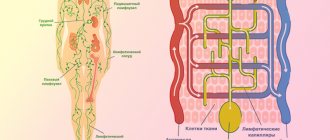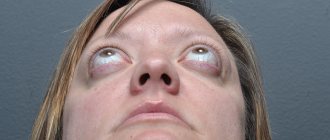Almost every second client who comes to me for a consultation, listing the reasons for coming, talks about anxiety. Sometimes he himself identifies it, sometimes he calls it another word or describes his condition so vividly that it becomes immediately clear what he means. Perhaps, it’s true that anxiety, which absolutely all people face at certain points in their lives, is often one of the main reasons for turning to a psychologist. Specifically, a prolonged state of anxiety or an increased level of anxiety. What this condition threatens and how you can work with it will be discussed in this article.
What is anxiety
Anxiety in psychological science is an emotional state that has a negative connotation. A person in a state of anxiety tends to expect something bad, for example, an unfavorable outcome of events or negative consequences. Anxiety is often confused with fear, but there is one clear difference between them: fear always has an object and is of a specific nature (for example, fear of spiders or heights), and anxiety is always pointless, often its nature is not clear even to the person himself, it always has vague causes .
Anxiety in psychology is a person’s ability to experience a state of anxiety associated with the occurrence of experiences in various situations. Every person has a certain, so-called normal level of anxiety, which is temporary and which a person can easily cope with if desired. However, if the state of anxiety is long-lasting, a person cannot cope with it on his own, and it has a disorganizing effect on life, then they speak of a state of increased anxiety. An increased level of anxiety accompanies the occurrence of various diseases and a significant decrease in the quality of life.
Treatment for Anxiety Disorder
The doctor makes a diagnosis if the patient worries too much about simple things and this condition lasts at least 6 months. The correct approach and diagnosis will help the doctor easily determine whether symptoms of increased anxiety are caused by a somatic disorder or an anxiety disorder. An illness caused by a physical condition—alcohol or drugs—can sometimes be cured if these problems are removed first.
There are many techniques aimed at treating this disease. As usual, medications are used, as well as psychotherapy sessions. The duration of treatment directly depends on the patient’s personal preferences and the scale of the problem.
Psychotherapy
Medicines help keep the disease under control, while the patient undergoes a psychotherapy session. The drugs used to treat such conditions are, of course, prescribed by a psychiatrist. These include beta blockers, various sedatives and simple antidepressants.
Why does anxiety occur?
Anxiety is influenced by a wide range of different causes. Most psychologists and neuroscientists agree that a combination of factors often plays a decisive role here, namely the combination of the innate characteristics of the functioning of the human nervous system with the influence of social and psychological factors. Here are just a few of the reasons that lead to an increase in a person’s anxiety level:
- heredity, characteristics (weakness) of the nervous system;
- improper upbringing, dysfunctional family environment surrounding a person in childhood;
- negative life experiences, numerous stresses, consequences of psychological and physical trauma;
- somatic diseases that manifest themselves in humans for a long time;
- chronic fatigue;
- low self-esteem;
- various problems and conflict situations in interpersonal relationships;
- insufficient amount (or complete absence) of physical activity and proper rest;
- abuse of alcoholic beverages, etc.
It is important to understand that if the reasons that caused increased anxiety are not related to the presence of a mental illness in a person, then it is advisable to consult a psychologist with this problem!
Causes of anxiety
All forms of anxiety disorders are united by one main symptom, characterized by enormous fear and overwhelming horror. The causes of anxiety pathologies have not yet been fully studied. Here the somatic and mental conditions in which a person lives are of great importance.
The provocateur of this condition in humans is stress, external stimuli and other unfavorable factors. In some patients, an anxious state appears without defining clear boundaries of trigger mechanisms. There are also certain diseases that provoke anxiety disorders: pulmonary and heart failure, bronchial asthma, etc.
Types of anxiety
Depending on the reasons influencing its development, it happens:
Personality anxiety
This is anxiety that is not interconnected with the surrounding stop and current events. With excessively expressed personal anxiety, the surrounding world is perceived as threatening and dangerous.
Situational or reactive anxiety
Anxiety, which is a reaction to some event or situation in a person’s life. For example, it is considered completely normal to be slightly anxious before an exam at college or a job interview. These experiences are common to all people. They have a mobilizing function, stimulating preparation for an upcoming event, thus reducing the risk of failure.
Depending on the area of occurrence, anxiety can be:
- Educational – arising in the learning process;
- Interpersonal – caused by conflicts and difficulties in communication;
- Social – appears due to the understanding of the need to interact with people around us: the process of acquaintance, direct communication, etc.;
- Anxiety caused by self-image – inflated claims (expectations) and low self-esteem, discrepancy between “I want” and “I can”;
- Anxiety caused by a choice situation is unpleasant feelings that arise during the decision-making process and are associated with the need to make a choice .
By impact on human volitional processes:
- Mobilizing anxiety - encourages a person to take actions that reduce the adverse consequences of the situation and the risk of failure by activating thinking, volitional processes and increasing physical activity.
- Inhibitory anxiety paralyzes a person’s will, complicates decision-making, inhibits thought processes and the implementation of active actions that could help get out of difficult situations.
According to the degree of adequacy of the situation:
- Adequate anxiety is a natural reaction to real-life difficulties and problems in various areas of life (family, work team, educational activities).
- Inappropriate anxiety - occurs in situations that are not potentially dangerous, but a person views them as posing a threat to his life, health, self-esteem, etc.
By severity:
- Reduced anxiety – characterized by the fact that a person does not tend to experience feelings of anxiety even in life-threatening situations. As a result, a person cannot adequately assess the degree of threat, is too calm, and does not anticipate the possibility of difficulties and the presence of risks.
- Optimal anxiety - has a moderate expression, does not interfere with the performance of functions, but rather mobilizes the body, improving mental activity and volitional abilities of a person. Also performs a protective and safety function in dangerous situations.
- Increased anxiety interferes with the normal functioning and life of a person, because it is an inadequate reaction to situations that do not carry threats or negative consequences.
Is it possible to cope with anxiety on your own?
You can live with anxiety, and a person adapts: he defines a comfort zone for himself, limiting his space. If he knows that anxiety will arise under certain conditions, he may isolate himself from this situation, not move forward, and not interact with new people.
That's why some people stay in the same job for twenty or thirty years and don't take steps forward, although they have the ability. They don’t change anything in their life for decades. This is how they exist.
That's why some people stay in the same job for twenty or thirty years and don't take steps forward, although they have the ability.
The surest way to cope is with a psychiatrist or psychiatrist-psychotherapist. It is better to contact a specialist with a medical education (not a psychologist), because he will be able to prescribe drug therapy that normalizes biochemical processes in the brain.
How to overcome anxiety?
So, what to do if you find yourself with increased anxiety that is preventing you from living a normal life? Below I will give a few recommendations that will help you somewhat reduce your anxiety level on your own.
Drug therapy
Medicines can only be prescribed by a doctor! Most often, for high anxiety, sedatives of varying degrees of effect are prescribed. Infusions of valerian or motherwort have the mildest effects. They can be taken independently. In more complex cases, medications are prescribed by a doctor, and they can only be purchased at a pharmacy with a prescription!
Introspection
You can try to independently analyze the reasons that make you anxious. To do this, you need to take a comfortable position and make sure that no one or nothing interferes with you. And the main thing is a reserve of time. Immerse yourself in your thoughts and experiences. Try to understand what is happening in your life now? What events, people, problems make you anxious? What ways are there to resolve these problems? Are there people in your life that you could turn to for help? Or maybe you are missing something to feel comfortable? How could this be achieved?
Change of life situation
If anxious experiences are associated with any specific area - work, family status, social circle, try to change something in this particular part of your life. Start small; you don’t have to quit your job or divorce your spouse right away. Consider what changes available to you will bring you comfort and greater satisfaction. And try to put them into practice.
Communication. Psychologists have confirmed the fact that having a wide circle of contacts and close social connections significantly reduces the level of anxiety.
Sports activities. Many articles have been written about the benefits of exercise. Regular training has a beneficial effect on the human body, helping to release accumulated tension and switch to a positive mood. A beautiful figure is a pleasant bonus, it increases self-esteem, improves mood and, as a result, anxiety decreases.
Rest and sleep mode. Overwork is one of the causes of increased anxiety, so it is extremely important to take a weekend off, get enough sleep and get proper rest.
Sometimes you can reduce anxiety on your own. However, most often, only a specialist can help to effectively and long-term correct a high level of anxiety. By turning to a psychologist for help, you can work together to understand the reasons that make you anxious and change your life situation in the way that is most suitable for you, making it as comfortable and safe as possible.
Diagnosis of anxiety disorders
Diagnostic criteria:
To assess whether a particular patient suffers from anxiety, it is advisable to rule out the presence of a systemic disorder. To do this, the doctor must take into account the following aspects:
- Physical symptoms.
- Previous medical and psychological history of the patient and his family.
- The possibility of suffering from an illness that causes an anxiety disorder.
- The influence of toxins such as caffeine, cannabis or cocaine.
Interview:
The clinical interview is the primary tool for making a diagnosis of anxiety disorders and gaining a general understanding of the patient. It must collect the necessary information and usually consists of four stages:
- Preliminary stage: The goal is to find out the reason for the consultation.
- Exploratory phase: Symptoms, location, intensity, chronology and evolution.
- The presence of organic pathologies.
- Direct triggers such as life changes, traumatic events and so on.
- Personal history: manic episodes, previous depression, etc.
- Study of the psychosocial sphere: beliefs and expectations, thoughts, affect and social and family environment, personality.
The risk of misdiagnosis has led to a large number of structured scales to identify the disorder. These scales by themselves are not sufficient to establish a diagnosis, but they help identify people susceptible to mental pathology who need to be subjected to more in-depth study. Some of the most commonly used scales are the Goldberg Anxiety and Depression Scale and the Hamilton Anxiety Scale.









